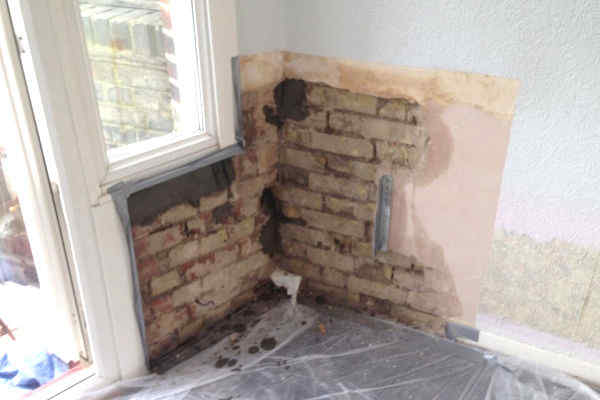What is a Damp Proof Course (DPC) and Its Importance
Owning real estate comes with responsibilities and as a homeowner, you are the one who should maintain the building, which is, after all, a very big investment. One of the main threats to UK buildings is damp and every property should have a damp proof course, which is typically made from bitumen and is inserted between brick courses at ground level when the foundations are complete.
How important is a damp proof course?
Dampness in the ground will rise up the building, but only as far as the damp proof course, which would be inserted just above ground level. This course should continue around the building and should the course be damaged and compromised, damp will rise up the exterior walls and damage occurs. Older properties are more likely to suffer with a damaged DPC membrane (damp proof course) and regular damp inspections are advised.
How long does a damp proof course last?
A damp proof course should last at least 25 years, indeed, if the membrane is of good quality and has been installed correctly, it should last a lot longer than 25 years. It should be noted that it only takes a small portion of the damp proof course to be damaged for damp to rise up the walls, which would cause significant damage over time. A property that was build post 1970s would probably have a plastic damp proof course, which is stronger than bitumen and less likely to be compromised.
Proactive strategies for preventing damp and mould
Rather than waiting for signs that damp is present in your home, there are things that you can do to prevent the onset of damp.
- Clean out roof guttering regularly – Blocked guttering causes excess rainwater to seep down the exterior walls. If you are cleaning out your guttering, you should inspect roof shingles, as missing or broken tiles can lead to water entering the internal roof structure, which can lead to woodworm and dry rot.
- Heat the whole house periodically – The high energy costs we have to endure in the UK means you would be reluctant to heat rooms that are not in use, yet heating the whole house every couple of days dries out the air, removing potentially dangerous moisture.
- Inspect the interior walls and ceilings – Specifically looking for damp patches, bubbling paint and peeling wallpaper.
- Create ventilation – This can be achieved by opening a few windows or installing extractor fans at specific locations. A good airflow dries out moist air and without it, mould can quickly form.
- Check all timber window and door frames – Look for signs of mould and mildew, which are usually accompanied by a musky odour. Wipe away all condensation that forms on windows and frames, if condensation is present. If you notice a musky smell in the house, you need a damp specialist in London.
At London Damp Specialists, we offer a comprehensive damp survey that comes with a detailed report and should there be damp issues, we quote for the remedial work. Call us on 020 8528 3864 anytime and let the professionals assess your home before damp gets hold and causes thousands of pounds worth of damage.


